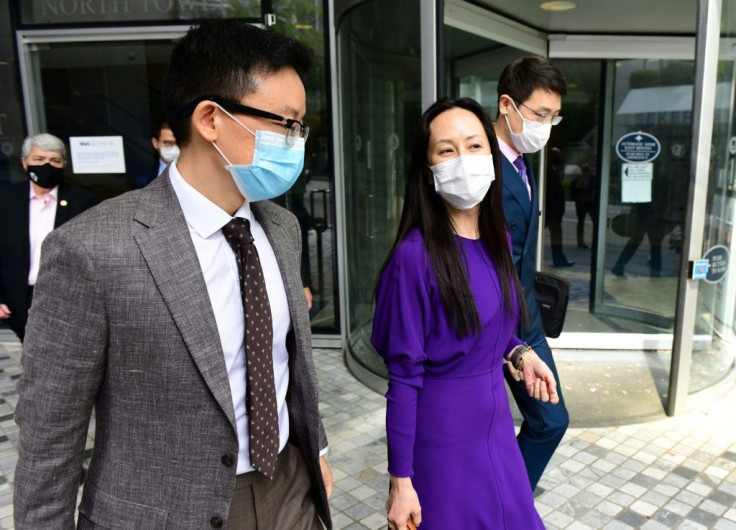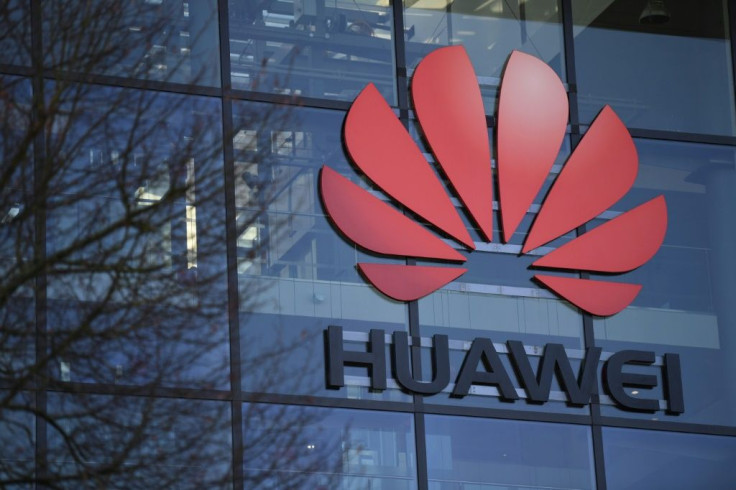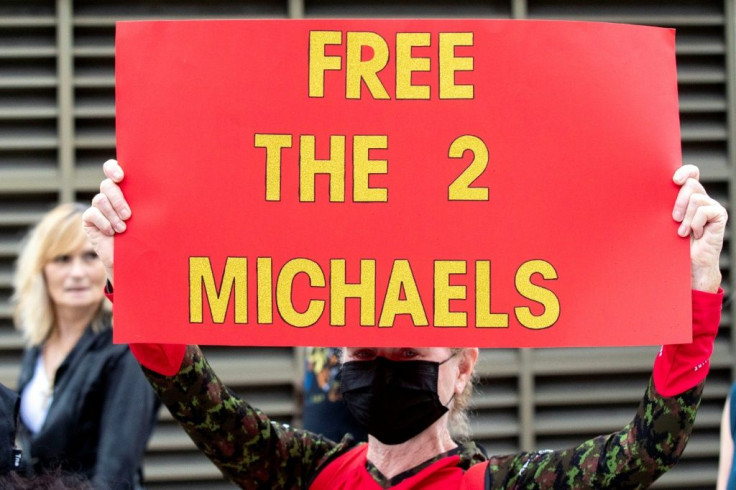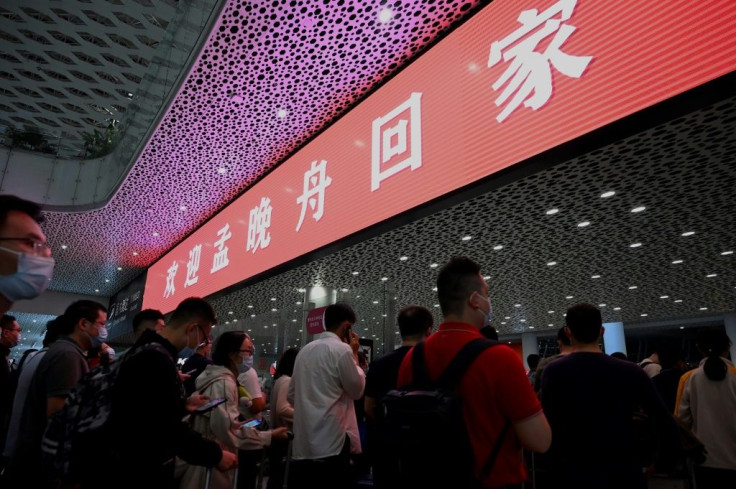Huawei Executive Lands In China After Deal With US
Huawei executive Meng Wanzhou returned to China Saturday shortly after two Canadians released from prison in China arrived in Calgary, ending a diplomatic row that has poisoned ties for three years.
Meng and the two Canadians -- former diplomat Michael Kovrig and businessman Michael Spavor -- were detained in a bitter spat critics have called "hostage diplomacy".
Meng, the 49-year-old daughter of Ren Zhengfei, the billionaire founder of Chinese telecoms giant Huawei, was granted release in a Vancouver court hearing after three years of house arrest in Canada while fighting extradition to the United States.

This came hours after US prosecutors announced an agreement under which fraud charges against her are to be suspended and eventually dropped.
Meng then quickly boarded a flight to the southern city of Shenzhen, returning to China for the first time since her arrest at Vancouver's international airport at the behest of US authorities in December 2018.
Meng received a red-carpet welcome home: Huawei employees waited on the airport tarmac waving Chinese flags, as a staffer in full protective gear offered her a bouquet of flowers, according to a live feed on state broadcaster CCTV.
"Being an ordinary citizen, I could not have secured my freedom without the support of my beloved country, and the love of the Chinese people," Meng told supporters from the tarmac, before leading the crowd in a rendition of a patriotic Chinese song.

Gushing coverage in Beijing's state media framed Meng's return as a victory for China against US attempts to stifle its success.
Several hundred supporters gathered at Shenzhen airport arrivals hall waving Chinese flags and banners, with a red banner reading "Welcome home".

Some chanted "Go Huawei!" and sang the national anthem.
Earlier Saturday, the two detained Canadians arrived back in Calgary, western Canada, and were shown on TV being greeted and hugged by Canadian Prime Minister Justin Trudeau.
The "two Michaels" -- as they have been dubbed by international media -- were detained just days after Meng on what Ottawa has contended were "trumped up" espionage charges.
The two freed Canadians "were in good spirits and looked to be in good shape physically", a Canadian official, who was present during the arrival, told AFP.

"It's wonderful, it's fantastic to be back home in Canada and I'm immensely grateful to everybody who worked so hard to bring both of us back home," Kovrig said, appearing on Canadian television smiling on the tarmac alongside his wife and sister.
Vina Nadjibulla, his wife, said before his arrival that she found herself "at a loss for words because the moment is so incredible. It's finally here after 1,020 days."
The resolution of the case removes a deep thorn in the relationship between Beijing, Washington and Ottawa, with China accusing the United States of a political attack on one of its technology titans.
Beijing also accused Ottawa of doing Washington's bidding by arresting and holding Meng, known inside Huawei as the "princess" of the company and its possible future leader.
Washington had accused her of wire fraud and deceiving HSBC bank, saying she tried to hide violations of US sanctions on Iran by Huawei affiliate Skycom.
But on Friday, US prosecutors settled for Meng agreeing to a statement of facts in the case.
In exchange, they agreed to defer the charges until 2022, and then drop them if Meng abides by the terms of the agreement.
In China, news of Meng's agreement was being scrubbed from the internet, while the editor of state-run Global Times said she had been "finally released on a not guilty plea".
Jean-Pierre Cabestan, Professor of Political Science at Hong Kong Baptist University, said China would build a propaganda campaign and "ignore the accusations against her and give the illusion that she was wrongly accused of crimes she never committed".
The company Saturday said it will "continue to defend itself against the allegations" in US courts.
Caught in between the two powers, Ottawa sought to rally allies, including Washington, to pressure Beijing to release the two Canadians.
Both were put on trial in March this year. In August, Spavor was sentenced to 11 years in prison, while there had been no decision in Kovrig's case.
"All the while, Beijing has insisted that this is not a case of hostage diplomacy -- but now they have made it abundantly clear that it is a hostage exchange," said Lynette Ong, associate professor of political science at the University of Toronto.
"I think it will probably send the wrong lesson to China -- that hostage diplomacy works."
© Copyright AFP 2024. All rights reserved.





















